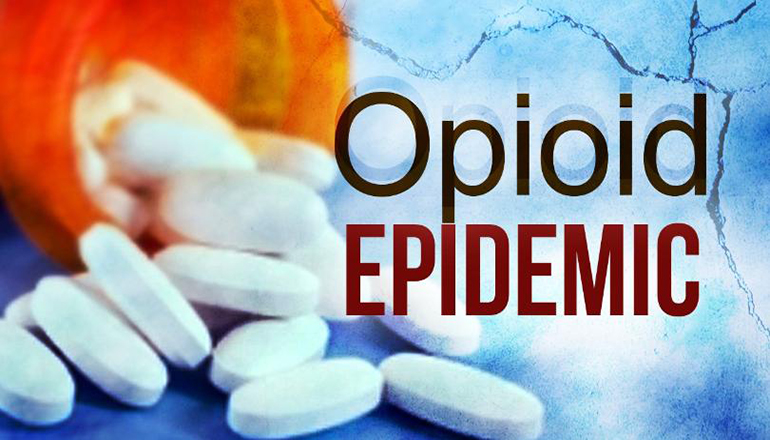Missouri Attorney General Eric Schmitt today announced that his office has received a term sheet from Johnson and Johnson and multiple distributors (McKesson, Amerisource Bergen, and Cardinal Health), setting the stage for the largest victim-centric settlements the State of Missouri has ever seen and tentatively securing roughly just over half a billion dollars of funding for a state that’s been severely ravaged by the opioid crisis. At an earlier press conference, Attorney General Schmitt also announced an initiative, “Fighting Addiction, Saving Lives,” to push political subdivisions to sign on to the settlement in order to get the maximum possible payment, and, in turn, resources to victims of addiction, preventative care, and other important programs.
“Opioid addiction has stolen thousands of our children, our brothers, sisters, mothers, fathers, and loved ones. It has ravaged our state, and ruined lives shattered dreams, and cut thousands of lives short. While this proposed settlement won’t bring back any of these victims, today’s announcement brings the very real possibility of just over half a billion dollars that will go directly toward funding crucial addiction treatment, recovery, and intervention programs, providing needed resources to victims of opioid addiction and funding prevention measures,” said Attorney General Schmitt. “This is the largest victim-centric settlement the State has ever seen, meaning that all of the money that the state receives will go entirely to treatment and abatement. To achieve maximum payment through this settlement, my Office and I will aggressively engage counties across the state. Without county sign-on, victims are deprived of millions of additional dollars, and counties deprive their citizens of needed funding for opioid treatment and abatement. This settlement provides us with the opportunity to fight addiction and truly save lives, and we will do everything in our power to realize the full potential of this settlement. I promised to keep a victim-centered approach in all I do as attorney general, and I intend to keep that promise.”
Under the proposed settlement, Johnson & Johnson will pay out $5 billion in total to all states that agree to the terms, and the distributors will pay out $21 billion in total to all states that agree to the terms. In total, Missouri could potentially receive just over half a billion dollars combined through these settlements, assuming complete subdivision sign-on. Without subdivision sign-on, that settlement number would be halved.
The entire share of the State’s portion of the fund (compared to the local government share) will go into a legislatively-created opioid abatement and treatment fund, to be used by the Departments of Mental Health, Social Services, Health and Senior Services, and Public Safety, to fund existing programs, including prevention programs, education programs, intervention efforts, treatment resources, recovery programs, treatment courts, and more. None of the State’s portion of the settlement will go to attorney’s fees – all money will go directly to abatement. Missouri is one of the very few states which did not use outside counsel to litigate these cases. Missouri’s case has been litigated by assistant attorneys general.
The attorneys general have 30 days to sign on to the term sheets, and Missouri intends to sign both term sheets. Then, attorneys general then have approximately 120 days to achieve sign-on from subdivisions that would trigger incentive payments.
To achieve those incentives, Attorney General Schmitt launched the “Fighting Addiction, Saving Lives” initiative to push for subdivisions/counties to sign on to the settlement, ensuring Missouri gets maximum payment.
The initiative will engage key stakeholders and enact a “full-court press” – press events and site visits across the state, social media posts, testimonial videos, weekly sign-on tracking on social media and on the website, and more – to reach out to subdivisions/counties and urge them to sign on to the initiative. If subdivisions/counties do not sign on, they deprive themselves of key opioid settlement money and take money out of the hands of those who desperately need it. As we move forward in the subdivision/county sign-on process, there will be a website that will contain an explanation of the initiative, why it matters, a detailed breakdown of the settlement structure, and up-to-date sign-on statistics.
In addition to a monetary settlement, both agreements have injunctive stipulations, which are as follows:
The agreement will result in court orders requiring Cardinal, McKesson, and AmerisourceBergen to:
- Establish a centralized independent clearinghouse to provide all three distributors and state regulators with aggregated data and analytics about where drugs are going and how often, eliminating blind spots in the current systems used by distributors.
- Use data-driven systems to detect suspicious opioid orders from customer pharmacies.
- Terminate customer pharmacies’ ability to receive shipments, and report those pharmacies to state regulators, when they show certain signs of diversion.
- Prohibit shipping of, and require reporting of, suspicious opioid orders.
- Prohibit sales staff from influencing decisions related to identifying suspicious opioid orders.
- Require senior corporate officials to engage in regular oversight of anti-diversion efforts.
The agreement will result in court orders requiring Johnson & Johnson to:
- Stop selling opioids altogether.
- Not fund or provide grants to third parties for promoting opioids.
- Not lobby on activities related to opioids.
- Share clinical trial data under the Yale University Open Data Access Project.







